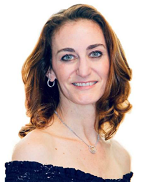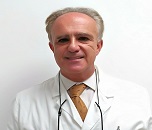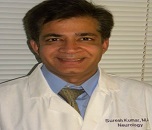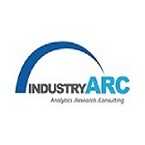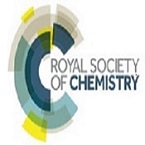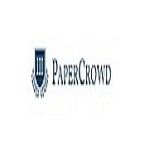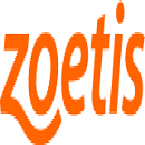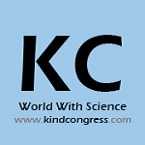Sessions and Tracks
Track 1 : Neurodegenerative Diseases: Updates on Alzheimer's, Parkinson's
This Neurodegenerative Diseases : Updates on Alzeimer's, Parkinsons provides a focused update on the latest advancements in the understanding, diagnosis, and treatment of Alzheimer's and Parkinson's diseases. Experts in the field will present cutting-edge research findings, clinical insights, and emerging therapies, offering attendees a comprehensive overview of the current state of these neurodegenerative disorders. This track provides a focused update on the latest advancements in the understanding, diagnosis, and treatment of Alzheimer's and Parkinson's diseases. Experts in the field will present cutting-edge research findings, clinical insights, and emerging therapies, offering attendees a comprehensive overview of the current state of these neurodegenerative disorders. They will discuss innovative therapeutic strategies, including disease-modifying therapies, gene therapies, stem cell-based approaches, and targeted drug interventions.
Relevand Socities : American Stroke Association | National Stroke Association | American Academy of Neurology | American Society of Neurorehabilitation | American College of Emergency Physicians | American Stroke Foundation | National Stroke Foundation
Track 2 : Stroke and Cerebrovascular Diseases: Advances in Diagnosis and Treatment
This Stroke and Cerebrovascular Diseases: Advances in Diagnosis and Treatment will highlight the latest advancements in the diagnosis and treatment of cerebrovascular diseases, including ischemic and hemorrhagic strokes.During a stroke, things move quickly once you get to the hospital. Your emergency team works to learn what type of stroke you're having. You'll likely have a CT scan or other imaging test soon after arrival. Healthcare professionals also need to rule out other possible causes of your symptoms, such as a brain tumor or a drug reaction. Emergency treatment depends on whether you're having an ischemic or hemorrhagic stroke. During an ischemic stroke, blood vessels in the brain are blocked or narrowed. During a hemorrhagic stroke, there's bleeding into the brain. An IV medicine that can break up a clot has to be given within 4.5 hours from when symptoms began. The sooner the medicine is given, the better. Quick treatment improves your chances of survival and may reduce complications.
Relevand Socities : Canada Stroke and Neurology Associations | Canadian Stroke Consortium | Canadian Neurological Sciences Federation | Canadian Neurological Society | Canadian Association of Neuroscience Nurses | Canadian Stroke Nurses Education Network
Track 3 : Neuroimaging Techniques: Latest developments in imaging technologies
Neuroimaging is a critical focuses on the use of various imaging technologies to study the structure and function of the nervous system. This track will explore the latest advancements in neuroimaging techniques, highlighting new technologies and methodologies that are enhancing our understanding of the brain and improving the diagnosis and treatment of neurological disorders. Advances in MRI technology, including high-resolution imaging, functional MRI (fMRI), and diffusion tensor imaging (DTI) for studying brain connectivity and function. Updates on PET imaging, including new tracers and applications for studying brain metabolism, receptor binding, and amyloid deposition in neurodegenerative diseases. Improvements in CT imaging for neuroimaging, including enhanced resolution and techniques for reducing radiation exposure
Relevant Societies : German Stroke Society | German Society of Neurology | German Society for Neurorehabilitation | German Society for Epileptology | German Society for Neurosurgery | German Alzheimer's Society
Track 4: Neurocardiology: Exploring the Interaction Between the Brain and the Cardiovascular System
Neurocardiology is an interdisciplinary examines the complex interactions between the brain and the cardiovascular system. This track will delve into the latest research and developments in Neurocardiology. Understanding how the autonomic nervous system controls heart rate, blood pressure, and cardiac function, including the roles of the sympathetic and parasympathetic nervous systems. Exploration of how neurological conditions, such as stroke, epilepsy, and neurodegenerative diseases, affect cardiovascular health and function. Investigating the neural mechanisms underlying hypertension and the role of the brain in the regulation of blood pressure Studying the bidirectional communication between the heart and the brain, including how cardiac function can influence brain health and vice versa.
Relevand Socities : American Stroke Association | National Stroke Association | American Academy of Neurology | American Society of Neurorehabilitation | American College of Emergency Physicians | American Stroke Foundation | National Stroke Foundation
Track 5 : Neurogenetics and Genomics: Understanding Genetic Factors in Neurological Disorders
Neurocardiology is an interdisciplinary field that examines the complex interactions between the brain and the cardiovascular system. This track will delve into the latest research and developments in Neurocardiology. Understanding how the autonomic nervous system controls heart rate, blood pressure, and cardiac function, including the roles of the sympathetic and parasympathetic nervous systems. Exploration of how neurological conditions, such as stroke, epilepsy, and neurodegenerative diseases, affect cardiovascular health and function. Investigating the neural mechanisms underlying hypertension and the role of the brain in the regulation of blood pressure Studying the bidirectional communication between the heart and the brain, including how cardiac function can influence brain health and vice versa.
Relevand Socities : Canada Stroke and Neurology Associations | Canadian Stroke Consortium | Canadian Neurological Sciences Federation | Canadian Neurological Society | Canadian Association of Neuroscience Nurses | Canadian Stroke Nurses Education Network
Track 6 : Neurophotonics: Harnessing Light to Explore the Nervous System
Neurophotonics is an emerging that utilizes light-based technologies to study and manipulate the nervous system. Use of light-sensitive proteins to control neuronal activity with high spatial and temporal precision, and its applications in studying brain circuits and behavior. Advances in fluorescence microscopy techniques, including two-photon microscopy and super-resolution imaging, for visualizing neuronal structures and functions at the cellular and molecular levels. Development and application of in vivo imaging techniques, such as functional imaging with calcium indicators and voltage-sensitive dyes, to monitor neuronal activity in real-time. Utilization of OCT for high-resolution imaging of neural tissues, including the retina and brain, and its applications in diagnosing and monitoring neurological disorders. Techniques for mapping neural networks and connectivity using light-based methods, including optogenetic stimulation and light-sheet microscopy.
Relevant Societies : German Stroke Society | German Society of Neurology | German Society for Neurorehabilitation | German Society for Epileptology | German Society for Neurosurgery | German Alzheimer's Society
Track 7 : Neurological Complications of COVID-19: Understanding the Impact and Management
The COVID-19 pandemic has revealed a wide range of neurological complications associated with the SARS-CoV-2 virus. This track will focus on the latest research and clinical insights into the neurological manifestations of COVID-19, emphasizing their impact on patients and approaches to management. Overview of the various neurological symptoms and complications observed in COVID-19 patients, including headaches, dizziness, anosmia, ageusia, and myalgia. Examination of CNS-related complications such as encephalitis, meningitis, acute disseminated encephalomyelitis (ADEM), and cerebrovascular events including stroke. Analysis of PNS-related complications, including Guillain-Barré syndrome, neuropathies, and myopathies. Investigating the pathophysiological mechanisms by which SARS-CoV-2 affects the nervous system, including direct viral invasion, immune-mediated damage, and thrombotic events.
Relevand Socities : American Stroke Association | National Stroke Association | American Academy of Neurology | American Society of Neurorehabilitation | American College of Emergency Physicians | American Stroke Foundation | National Stroke Foundation
Track 8 : Ethical Issues in Neurological Research and Practice: Balancing Innovation and Patient Rights
Ethical considerations play a crucial role in neurological research and clinical practice, where complex issues arise due to the vulnerability of patients and the rapid pace of innovation. Ensuring that patients and research participants understand the risks and benefits of neurological procedures or research studies, particularly in cases where patients may have impaired decision-making capacity. Safeguarding patient information in neurological research and practice, especially in the era of electronic health records and data sharing. Examining the ethical implications of using drugs or devices to enhance cognitive or physical functions in individuals without neurological disorders. Ethical considerations in the use of genetic information in neurological research and practice, including concerns about privacy, discrimination, and informed consent. Ensuring that clinical trials in neurology adhere to ethical standards, including the recruitment of vulnerable populations and the reporting of results.
Relevand Socities : Canada Stroke and Neurology Associations | Canadian Stroke Consortium | Canadian Neurological Sciences Federation | Canadian Neurological Society | Canadian Association of Neuroscience Nurses | Canadian Stroke Nurses Education Network
Track 9 : Neuropharmacology: Exploring Drug Effects on the Nervous System
Neuropharmacology is on how drugs affect the nervous system, including the brain, spinal cord, and peripheral nerves. This track will delve into the latest research and developments in neuropharmacology, highlighting the mechanisms of action of various drugs and their impact on neurological function. Exploration of different drug targets, including neurotransmitter receptors, ion channels, and enzymes, and how drugs interact with these targets to produce therapeutic effects. Overview of major neurotransmitter systems in the brain, such as dopamine, serotonin, and acetylcholine, and how drugs modulate these systems to treat neurological disorders. Study of drugs used to treat psychiatric disorders, including antidepressants, antipsychotics, and anxiolytics, and their mechanisms of action. Understanding how drugs are absorbed, distributed, metabolized, and excreted in the body, and how these processes affect drug efficacy and safety. Exploration of genetic factors that influence individual responses to drugs, and how pharmacogenomic testing can optimize drug therapy in neurology.
Relevant Societies : German Stroke Society | German Society of Neurology | German Society for Neurorehabilitation | German Society for Epileptology | German Society for Neurosurgery | German Alzheimer's Society
Track 10 : Neurovirology: Understanding Viral Infections of the Nervous System
Neurovirology on the study of viruses that infect the nervous system. Updates on the mechanisms by which viruses infect and replicate in the nervous system, leading to neurological disease. Viruses that have a particular affinity for the nervous system, such as herpes viruses, rabies virus, and enter viruses. Role of the immune response in controlling viral infections of the nervous system and its contribution to neurological damage. Study of viral infections that can lead to neurological disorders, such as encephalitis, meningitis, and demyelinating diseases. Mechanisms by which viruses establish persistent infections in the nervous system and strategies for viral clearance. Exploration of the role of viral infections in the development of neurodegenerative diseases, such as multiple sclerosis and Parkinson's disease.
Relevand Socities : American Stroke Association | National Stroke Association | American Academy of Neurology | American Society of Neurorehabilitation | American College of Emergency Physicians | American Stroke Foundation | National Stroke Foundation
Track 11 : Neuroendocrinology: Study of the interaction between the nervous system and the endocrine
Neuroendocrinology on the interactions between the nervous system and the endocrine system. Updates on the role of the hypothalamus and pituitary gland in regulating hormone secretion and their impact on physiological processes. On the role of neurotransmitters and hormones in mediating the communication between the brain and the endocrine system. Neuroendocrine response to stress and its impact on health and disease. Exploration of the neuroendocrine mechanisms regulating reproductive function, including puberty, menstruation, and fertility. Potential targets for pharmacological intervention in neuroendocrine disorders and their translation into clinical practice. Exploration of the changes in neuroendocrine function associated with aging and their implications for healthspan and life.
Relevant Socities : Canada Stroke and Neurology Associations | Canadian Stroke Consortium | Canadian Neurological Sciences Federation | Canadian Neurological Society | Canadian Association of Neuroscience Nurses | Canadian Stroke Nurses Education Network
Track 12 : Neurosurgery: Advancements in Surgical Techniques for Neurological Disorders
Neurosurgery is a specialized field that focuses on the surgical treatment of neurological disorders affecting the brain, spinal cord, and peripheral nerves. Role of neurosurgery in the management of critically ill neurological patients, including monitoring and treatment of intracranial pressure. Novel technologies and approaches in neurosurgery, including 3D printing, virtual reality, and intraoperative neuroimaging. Study of surgical techniques for the treatment of cerebrovascular disorders, including aneurysms, arteriovenous malformations, and stroke. This track aims to provide attendees with a comprehensive overview of the latest advancements in neurosurgical techniques, highlighting the importance of surgical innovation in improving patient outcomes and quality of life for individuals with neurological disorders.
Relevant Societies : German Stroke Society | German Society of Neurology | German Society for Neurorehabilitation | German Society for Epileptology | German Society for Neurosurgery | German Alzheimer's Society
Track 13 : Pediatric Neurology: Advances in Understanding and Treating Neurological Disorders in Children
Pediatric on the diagnosis, treatment, and management of neurological disorders in children. Neurogenetics is a role of genetic testing and counseling in the diagnosis and management of genetic neurological disorders in children. Neuromuscular Disorders is having updates on the diagnosis and treatment of neuromuscular disorders in children, including muscular dystrophies and spinal muscular atrophy. Movement Disorders on the diagnosis and management of movement disorders in children, such as cerebral palsy, dystonia, and Tourette syndrome. Epilepsy and Seizure Disorders advances in the treatment of epilepsy and seizure disorders in children, including novel antiepileptic drugs and surgical approaches. Transition to Adult Care is a challenges and strategies for transitioning pediatric patients with neurological disorders to adult care.
Relevant Socities : American Stroke Association | National Stroke Association | American Academy of Neurology | American Society of Neurorehabilitation | American College of Emergency Physicians | American Stroke Foundation | National Stroke Foundation
Track 14 : Neuro-Oncology: Updates on brain and spinal cord tumors
Neuro-oncology is a specialized field that focuses on the diagnosis and treatment of brain and spinal cord tumors. Survivorship is a long-term follow-up and care of survivors of brain and spinal cord tumors, including monitoring for late effects of treatment. Role of patient advocacy organizations and support groups in providing resources and support for patients with brain and spinal cord tumors and their families. Neurological Complications is a management of neurological complications associated with brain and spinal cord tumors, including seizures, hydrocephalus, and cognitive deficits. Clinical Trials is a updates on ongoing clinical trials investigating new treatment approaches for brain and spinal cord tumors.Patient Advocacy and Support is a role of patient advocacy organizations and support groups in providing resources and support for patients with brain and spinal cord tumors and their families.
Relevant Socities : Canada Stroke and Neurology Associations | Canadian Stroke Consortium | Canadian Neurological Sciences Federation | Canadian Neurological Society | Canadian Association of Neuroscience Nurses | Canadian Stroke Nurses Education Network
Track 15 : Cognitive Impairment in Neurological Disorders: From Assessment to Intervention
Cognitive impairment is a common feature of many neurological disorders, affecting memory, attention, language, and executive function. Neuropsychological Assessment is a overview of neuropsychological tests and tools used to assess cognitive function in neurological disorders, including standardized assessments and novel technologies. Examination of cognitive profiles associated with different neurological conditions, such as Alzheimer's disease, Parkinson's disease, multiple sclerosis, and stroke. Early Detection and Diagnosis Is having a Importance of early detection of cognitive impairment in neurological disorders and strategies for timely diagnosis and intervention. Ethical issues related to the assessment and management of cognitive impairment, including informed consent, capacity assessment, and end-of-life care. Clinical Trials and Research on ongoing clinical trials and research studies investigating novel interventions for cognitive impairment in neurological disorders.
Relevant Socities : American Stroke Association | National Stroke Association | American Academy of Neurology | American Society of Neurorehabilitation | American College of Emergency Physicians | American Stroke Foundation | National Stroke Foundation
Track 16 : Neurotoxicology: Effects of toxins on the nervous system.
Neurotoxicology interest in the toxicology of the nervous system has grown rapidly in recent years not only because of heightened public concern about the impact of toxic substances on human health but also because the nervous system has been shown to be especially vulnerable to chemical insult (Anger and Johnson, 1985). The potential effects of such toxicity are quite varied, reflecting the large role played by the nervous system in regulating vital body functions and in perceiving, assessing, and responding to the external environment. Interference with these processes by overexposure to chemical and certain physical agents can produce a variety of abnormal neurobehavioral responses, some of which may be life threatening, others resulting in short-term neurobehavioral changes that disappear without a trace, and still others causing permanent or even progressive neurological or psychiatric disorders. Of special concern is the possibility that environmental exposure to certain neurotoxic agents, such as lead, may irreversibly compromise the normal development and capacity of the human brain.
Relevant Socities : Canada Stroke and Neurology Associations | Canadian Stroke Consortium | Canadian Neurological Sciences Federation | Canadian Neurological Society | Canadian Association of Neuroscience Nurses | Canadian Stroke Nurses Education Network
Track 17 : Neurorehabilitation: Rehabilitation techniques for individuals with neurological disorders.
Neurologists have a new toolbox of options for neurorehabilitation of disabling brain disorders such as stroke and traumatic brain injury. An emerging intellectual paradigm for neurologic recovery that includes neural regeneration, repair, and dynamic reorganization of functional neural systems, as well as increasing awareness of behavioral principles that may support best return to function and freedom, brought forward treatments based on experience-dependent learning, neurophysiologic stimulation, and a combination of these concepts. In this article, we summarize five rehabilitative approaches to watch: constraint therapy for motor and language recovery, synergy of motor-language rehabilitation, prism adaptation training and other virtual feedback approaches, and noninvasive magnetic and electrical brain stimulation.
Relevant Societies : German Stroke Society | German Society of Neurology | German Society for Neurorehabilitation | German Society for Epileptology | German Society for Neurosurgery | German Alzheimer's Society
Track 18 : Precision Medicine in Neurology: Personalized Approaches for Optimal Patient Care
Precision medicine has revolutionized the field of neurology by recognizing that each patient's condition is unique, and treatment should be tailored to individual characteristics. This session focuses on the applications of precision medicine in neurology and explores how personalized approaches can optimize patient care.During this session, renowned experts will present the latest research and advancements in precision medicine for neurological disorders. They will discuss the integration of genomics, biomarkers, imaging techniques, and advanced diagnostics to provide precise diagnoses, select appropriate treatments, and monitor disease progression. Attendees will gain insights into the potential of precision medicine in improving patient outcomes, identifying risk factors, and predicting treatment responses. The session will highlight case studies where precision medicine approaches have led to more effective and targeted therapies, resulting in improved quality of life for patients. Discussions will also cover the challenges and future directions of precision medicine in neurology, including data management, ethical considerations, and implementation strategies. The session aims to foster interdisciplinary collaborations and inspire innovative research in the field Stroke.
Relevant Socities : American Stroke Association | National Stroke Association | American Academy of Neurology | American Society of Neurorehabilitation | American College of Emergency Physicians | American Stroke Foundation | National Stroke Foundation
Track 19 : Innovative Approaches in Neurological Surgery: Advancements and Outcomes
Neurological surgery plays a crucial role in the treatment of various neurological disorders, offering hope and improved outcomes for patients. This session focuses on the latest advancements and outcomes associated with innovative approaches in neurological surgery.During this session, experts in the field will present cutting-edge research and advancements in neurological surgical techniques. They will discuss minimally invasive procedures, robotic-assisted surgery, intraoperative imaging, and neuroendoscopy, among other innovative approaches. Presentations will highlight the benefits of these techniques, including reduced surgical trauma, improved precision, and faster recovery times. Discussions will revolve around the applications of these innovative approaches in the treatment of neurological disorders such as brain tumors, epilepsy, movement disorders, and vascular abnormalities. Experts will share their experiences, challenges, and success stories in utilizing these techniques to optimize surgical outcomes and patient safety. Moreover, the session will address the integration of technology, such as augmented reality, virtual reality, and 3D printing, in preoperative planning and intraoperative navigation. Experts will discuss the potential of these technologies to enhance surgical precision, improve patient outcomes, and advance the field of neurological surgery.
Relevant Societies : German Stroke Society | German Society of Neurology | German Society for Neurorehabilitation | German Society for Epileptology | German Society for Neurosurgery | German Alzheimer's Society
Track 20 : Biomarkers in Neurological Disorders: Advancing Diagnosis, Prognosis, and Treatment
Biomarkers play a crucial role in the field of neurological disorders by providing objective measures that aid in the diagnosis, prognosis, and treatment of various conditions. This session focuses on the latest advancements in biomarkers and their potential to advance the field of neurological disorders.During this session, experts will present cutting-edge research findings and advancements in the field of biomarkers. They will discuss the identification, validation, and application of biomarkers in neurological disorders such as Alzheimer's disease, Parkinson's disease, multiple sclerosis, and stroke. Presentations will cover various types of biomarkers, including neuroimaging biomarkers, cerebrospinal fluid biomarkers, blood-based biomarkers, and genetic biomarkers. Experts will discuss the role of these biomarkers in disease diagnosis, monitoring disease progression, predicting treatment response, and evaluating treatment efficacy. Discussions will revolve around the challenges and opportunities associated with biomarker development and implementation in clinical practice. Experts will address topics such as standardization, reproducibility, and the integration of biomarkers into clinical decision-making processes. Furthermore, the session will explore emerging biomarkers and innovative technologies that hold promise in improving the accuracy and specificity of biomarker-based assessments. Experts will discuss the potential of novel biomarkers in early disease detection, identifying at-risk individuals, and guiding personalized treatment approaches.
Relevant Socities : Canada Stroke and Neurology Associations | Canadian Stroke Consortium | Canadian Neurological Sciences Federation | Canadian Neurological Society | Canadian Association of Neuroscience Nurses | Canadian Stroke Nurses Education Network
